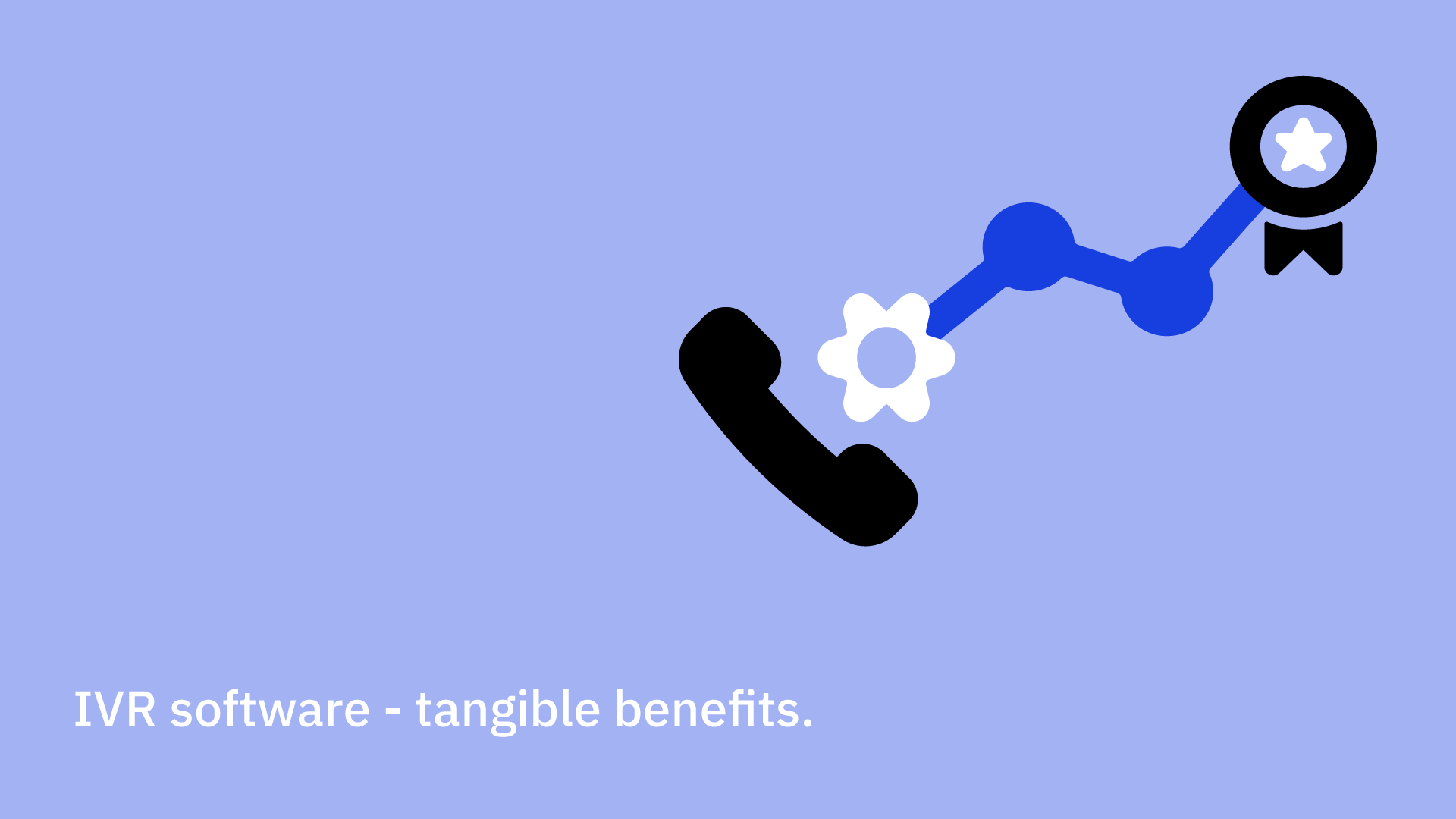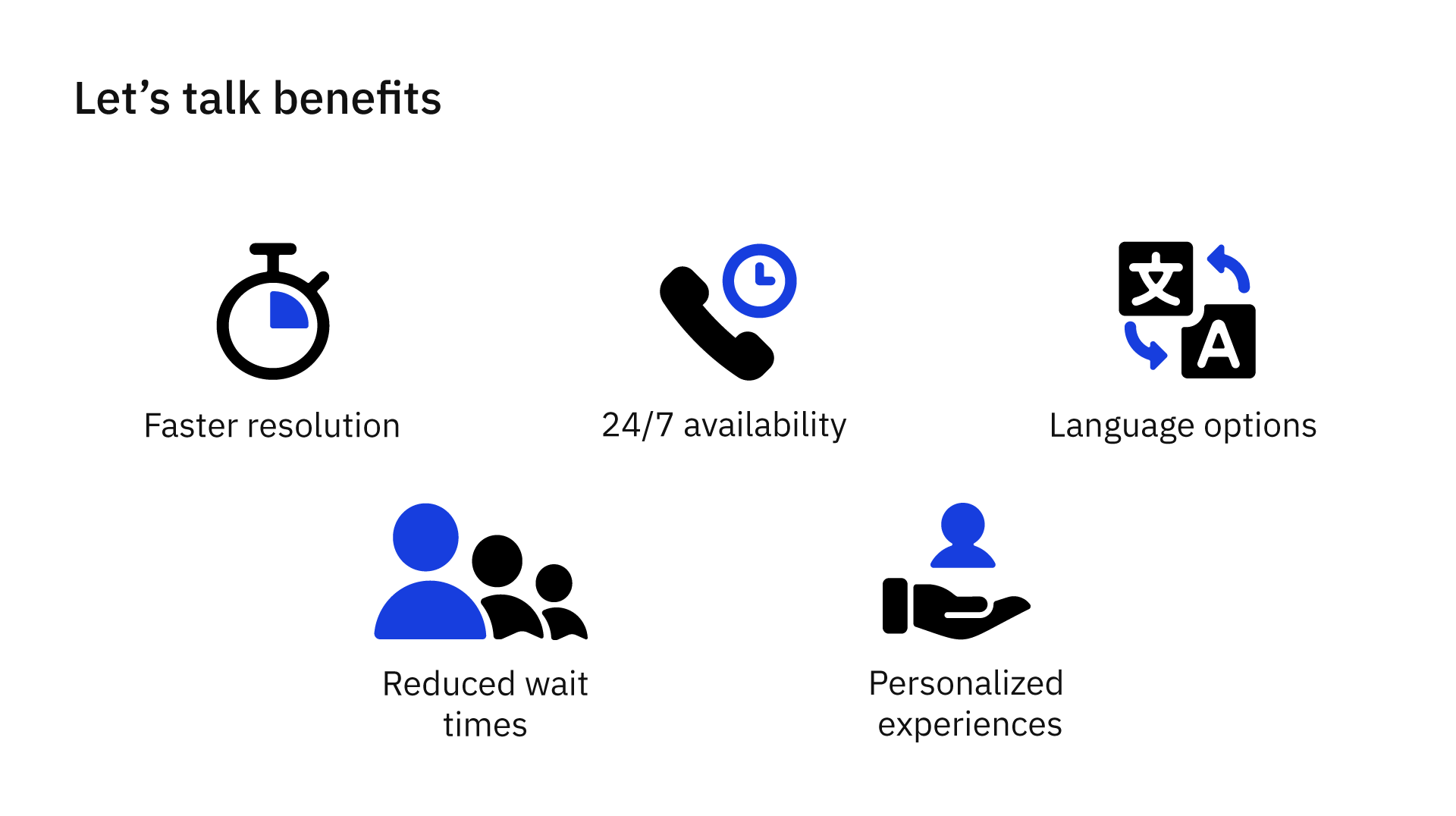IVR software - tangible benefits.

Have you ever called a company and effortlessly navigated a menu of voice prompts to reach the right department or information? That smooth experience was likely powered by IVR software (Interactive Voice Response). This innovative technology has revolutionized how businesses manage customer interactions, acting as a virtual receptionist that guides callers and enhances the overall customer experience.
In this comprehensive guide, we'll unveil the power of IVR software, exploring its inner workings, benefits, and why it's become a cornerstone for modern businesses. Whether you're a business owner seeking to optimize customer service or simply curious about this ubiquitous technology, we'll delve into the world of IVR and demonstrate how it's transforming customer interactions for the better.
IVR software 101 - a refresher.
We’ve already covered this in a previous blog on Interactive Voice Response, but, as they say, repetition is the mother of learning. So, when you call customer service, the friendly automated voice that greets you isn't just a pre-recorded message. It's your personal guide, powered by IVR software, the unsung hero of modern customer support.
Remember the days when calling a company felt like a wild goose chase? IVR software has transformed that chaotic experience into a smooth, guided journey, ensuring you get exactly where you need to be. This intelligent virtual receptionist is available 24/7, ready to streamline your experience.
Think of it as a GPS for customer service. Just like a GPS intelligently routes you to your destination, IVR software understands your request and directs you to the right department or person, saving you from the frustration of being transferred multiple times.
Need a quick answer? IVR software can instantly respond to frequently asked questions about account balances, store hours, or product details. It's like having a knowledgeable assistant at your beck and call.
Beyond providing information, IVR software can gather valuable feedback through surveys, collect order details, and even personalize your experience by remembering your preferences.
Advanced IVR systems are even more impressive. They can handle simple transactions like processing payments, scheduling appointments, confirming deliveries, and updating your account information. It's like having a digital concierge that takes care of the details for you.
The real magic of IVR software lies in its efficiency and accessibility. It's always there when you need it, freeing up human agents to focus on more complex issues. This means faster, more personalized service for everyone.
What can IVR software do for your customers?
24/7 Accessibility: Imagine having a burning question about a recent purchase at 3 AM. With IVR software, you don't have to wait until business hours. You can call the company's helpline, and the IVR system can answer your query instantly, providing information about your order status, return policy, or store hours.
Faster Resolutions: Consider calling your bank to inquire about a recent transaction. Instead of waiting in a queue to speak to an agent, the IVR system can quickly pull up your transaction history and provide the information you need. If the issue is more complex, the IVR can seamlessly transfer you to the most appropriate agent, equipped with your information, saving you valuable time.
Personalized Experiences: IVR software can remember your preferences and tailor interactions accordingly. If you frequently call your airline to check flight status, the IVR system might recognize your number and directly provide the information you seek, skipping unnecessary steps. This personalization saves you time and creates a more user-friendly experience.
Reduced Wait Times: By automating routine tasks and providing self-service options, IVR software significantly reduces wait times. For instance, calling your internet provider to report a technical issue might involve a lengthy wait time if you need to speak to a technician. However, the IVR system can often guide you through troubleshooting steps or schedule a callback from a technician, reducing your wait time and frustration.

Language Options: For non-native speakers or those who prefer a different language, IVR software often offers multiple language options. This ensures that language is not a barrier to accessing the information or services you need. For example, a traveler calling a hotel in a foreign country can use the IVR system in their native language to make a reservation or inquire about amenities.
In essence, IVR software is like a helpful assistant that guides you through your customer service journey, providing quick answers, personalized experiences, and efficient resolutions. By automating routine tasks and offering self-service options, IVR empowers customers and enhances their overall experience.
And what can it do for you?
IVR software offers a wealth of benefits for businesses, transforming customer service and boosting operational efficiency. Let's explore some real-life examples:
24/7 Availability & Reduced Wait Times: Imagine a busy e-commerce store receiving thousands of customer calls daily. IVR software ensures customers can access support anytime, reducing frustration from long wait times. For instance, a customer can quickly check their order status at 2 AM without needing a live agent.
Efficient Call Routing & Improved First Call Resolution: In a hospital setting, where time is critical, IVR software directs patients to the right department instantly. A patient calling with a billing inquiry is seamlessly routed to the billing department, while someone needing emergency care is connected to a nurse immediately. This streamlined process saves valuable time and ensures patients receive prompt attention.
Cost Savings & Increased Agent Productivity: A telecommunications company like Verizon, handling massive call volumes, uses IVR software to automate routine tasks like balance inquiries and plan changes. This frees up live agents to focus on complex issues, such as troubleshooting technical problems. The result? Reduced operational costs and increased agent productivity.
Data Collection & Personalization: A hotel chain utilizes IVR software to gather guest feedback through post-stay surveys. This data helps them understand customer preferences and tailor their services accordingly. For instance, if frequent guests express a preference for late check-out, the hotel can proactively offer this option during their next stay.
Enhanced Customer Experience & Self-Service Options: A bank like Chase implements IVR software to provide self-service options for routine transactions. Customers can easily check their account balance, transfer funds, or make payments through the IVR system. This empowers customers to manage their finances conveniently, improving overall satisfaction and reducing the burden on customer service representatives.
Multilingual Support & Accessibility: IVR software can cater to a diverse customer base by offering multilingual support. For example, a global airline like Emirates uses IVR software to provide assistance in multiple languages, ensuring a seamless experience for passengers from different countries. Additionally, IVR systems can be equipped with accessibility features for visually impaired or hearing-impaired customers.
Scalability & Flexibility: During peak seasons or promotional events, businesses experience a surge in customer inquiries. IVR software easily scales to accommodate increased call volumes, ensuring seamless customer service even during busy periods. Additionally, IVR systems can be easily customized to meet evolving business needs, adding new features and functionalities as required.
These are just a few examples of how IVR software is revolutionizing the way businesses interact with their customers. By automating routine tasks, streamlining processes, and providing self-service options, IVR software enables businesses to deliver exceptional customer service while optimizing operational efficiency